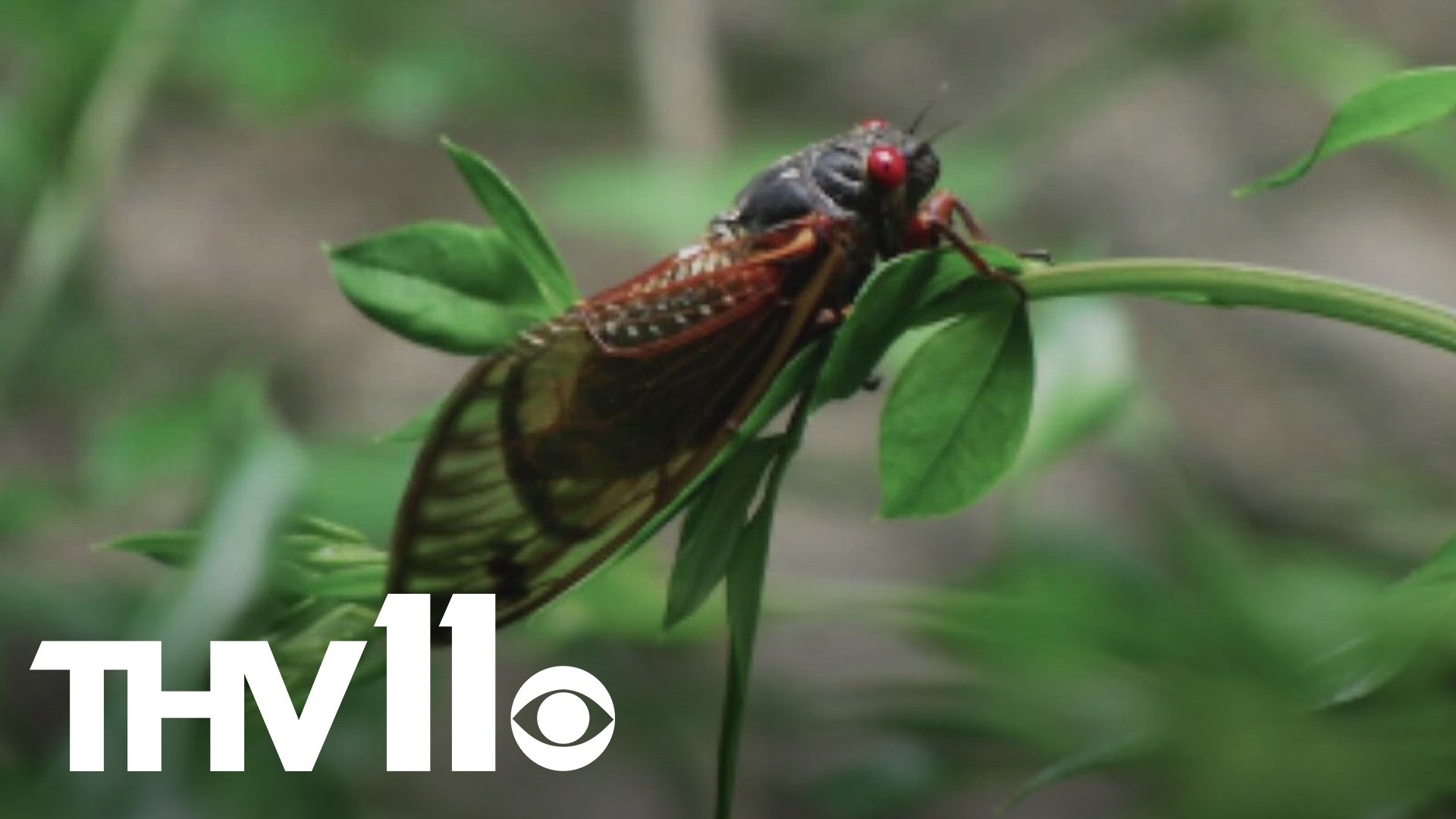LITTLE ROCK, Ark. — A rare re-emergence of a certain type of insect is set to happen this spring. After more than a decade, two broods of cicadas will make their return— and one will appear right here within the Natural State.
Jon Zawislak, Extension Entomologist for the University of Arkansas System Division of Agriculture, said that massive groups of male cicadas climb up onto trees and form what's called a chorus and sing a song that's meant to attract the females.
"Within a couple of months, some insects are going to crawl out of the ground, and there'll be around looking for love," Zawislak explained. "They're not screaming, they're singing."
For the first time in 13 years, Brood 19 of cicadas will remerge this spring across 15 states for up to four to six weeks— and Arkansas is on that list.
"They feed on the sap from the roots of trees, and they grow very slowly. They are synchronized to come out all at once. They know when a year has passed because of the cycle of nutrients flowing through the trees," Zawislak said. "And so they counted up and when the time is right, they all come out at once."
As to why we may feel overwhelmed by so many cicadas, Zawislak said the idea is that if they all come out at the same time, they just kind of overwhelm all their predators.
Many of those predators get so stuffed with cicadas that they can't even look at another one, which provides the survivors an opportunity to meet and reproduce.
If you're wondering what makes these broods different than what we hear every year, Zawislak said these are in the genus called Magicicadas and they are the periodical cicadas.
This year's spring emerging cicadas are either on a 13 or 17-year cycle and in different parts of the country. Oftentimes, we will see these large populations that emerge altogether— but that doesn't mean we won't get our annual visitors later this summer.
“We have the annual cicadas that come out every year. Some people call them Dog Day cicadas because they usually have their peak emergence towards the end of the summer," Zawislak said.
According to experts another species of cicadas, Brood 13, which only shows up every 17 years will re-merge in northern states this spring.
The two groups could come close to overlapping in the Springfield, Illinois area in an event that hasn't happened since 1803 when Thomas Jefferson was president.
So, buckle up for a noisy spring and summer!


"Yes, they're going to be about the same decibel level as the ones we're familiar with. It's just that there will be a whole lot of them coming out at an earlier time," Zawislak said.
If your entomophobia is kicking in, just remember one thing: cicadas can't hurt you.
"They look big and scary if you're not familiar with them, but the adults really don't even feed, they don't have functional mouthparts. They're just there to sing their song and do their thing and then they will disappear," Zawislak said.
He also received a question regarding a predator of cicadas, the cicada killer wasps. They are the largest wasps in the state, and they feed and reproduce on cicadas.
By stinging the cicadas, the wasps paralyze them. Then, they fly off and bury them in the ground on people's lawns. They dig a burrow, lay an egg on it, and then bury it.
While the cicada is still alive, the larva will then feed on it. So, it has to lay there in a hole for a couple of weeks waiting to be eaten and then once pupate underground, the adults come out again next year.
With this process, homeowners could experience damage to their yards, but there are ways to protect your lawn.
"Just water and fertilize it and grow it really thick. When the lawn is very thick, then the wasps don't really have an opportunity to sink. Cicada killers don't have an opportunity to burrow into the yard and dig around," Zawislak advised.

